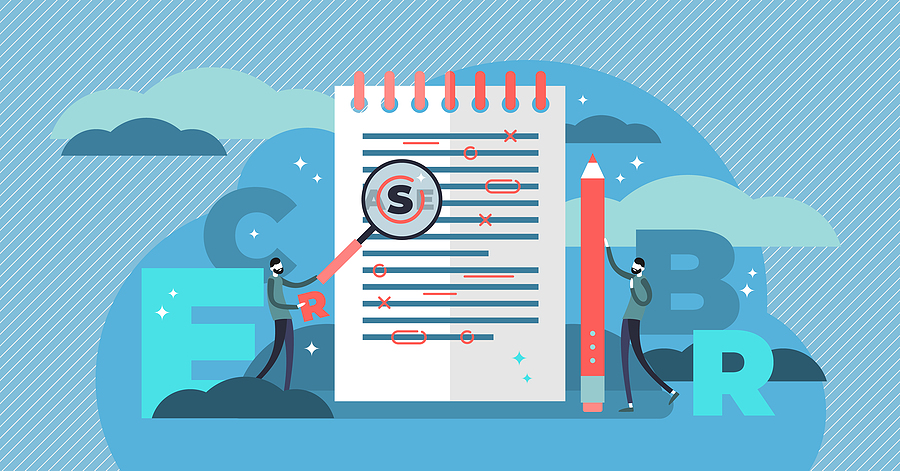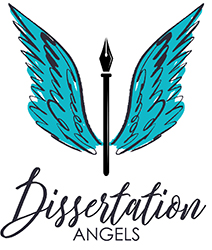Dissertation editing can be an intense project, even for manuscripts already in great shape. The time required to edit a dissertation depends on the quality of the writing and the type of editing needed. In this post, I’m going to break down the three main types of dissertation editing I provide to my clients, the time required to complete each type of edit, and of course, the associated costs.
Word of warning

Before I get into the heart of this post, I want to share a quick word of warning. While there are plenty of *amazing* dissertation editors, I’ve also noticed an uptick in not-so-great services being marketed at very low rates. Over the years, I’ve had to edit manuscripts that students paid other writers to edit. Just because someone stumbled through getting their own dissertation published does NOT mean they’re qualified editors. A quality dissertation editor will have testimonials and strong recommendations to support their work, and they’ll also perform sample edits to give you a sense of their skills.
What is a sample edit?
A sample edit is a brief edit (completed by hours or pages) that serves two purposes: (a) it helps you assess an editor’s skills and fit with your project, and (b) it helps the editor develop an accurate quote for your project. This is how the sample edit works with me:
You’ll send me your document — even if it’s not completely ready. I’ll spend two hours editing a few pages, using track changes. Once completed, I’ll return the document for your review. The charge for this service is $180. If you choose to work with me, the cost is subsumed within the project cost if no other changes are made to those pages. If you decide to not work with me, you’ll still come away with some good direction for making improvements on your own. You can read more about my editing process here.
Understanding types of dissertation editing

There are three main types of editing that may be needed for your dissertation. You should discuss your project and goals with your editor to make sure everyone is on the same page regarding the project scope. The types of editing I offer include developmental editing, content editing, and line editing.
Developmental editing
Developmental editing takes a “big picture” approach to your project. With developmental editing, I’m looking at all the pieces of your project to ensure cohesion and consistency. Rather than focus on specific grammatical issues (such as punctuation or word choice), a developmental edit ensures your project has a strong foundation, great organization, and that all of the pieces line up (such as the research questions, problem, purpose, method/design, the research discussed in Chapter 2). Developmental editing is ideal when you’ve completed your first draft of the proposal chapters. This type of editing allows me to address potential issues before your chair and committee members have the chance to.
Content editing
Content editing is more focused than developmental editing. Once you’ve got a strong foundation, content editing can improve the quality and breadth of the content in your chapters. Content editing can involve providing feedback or adding content/resources to strengthen your chapters. Content editing also focuses on the tone of your writing, making sure it is academic and formal, while ensuring the focus of each sentence and paragraph is clear and builds in a logical fashion.
Line editing
Finally, the most precise form of editing is line editing. A line edit should happen AFTER solid content and development of your project. Line editing provides the final polishing of your project, making sure the grammar, style, formatting, and word choice are perfect. A line edit does NOT take a macro approach – this type of edit is focused on the nitty gritty, so it’s important that line editing is not performed until the content and organization of the chapters are approved! Line edits are typically performed twice: right before the proposal defense, and then after the final defense (before publication). A line edit will also address the verb tense changes (future tense to past tense) needed to convert Chapters 1-3 for the final dissertation manuscript.
How much does dissertation editing cost?

The cost of an edit will depend on the needs of a project. Some editors charge by the word or the page, others (like me) charge based on an hourly rate. A project quote will require a review of your work, but here’s a general idea of typical editing speeds for each of the aforementioned types of edit:
Developmental: 3-5 pages per hour
Content: 1-4 pages per hour
Line: 3-6 pages per hour
As you can see, there’s quite a range. For example, a line edit of a pretty well written, 80-page proposal could be performed at 6 pages per hour, and completed in about 12-13 hours (total price: $1080-$1170).
How to find the best dissertation editing services?
Before hiring someone to edit a dissertation, ask around, read testimonials, and request a sample edit! After you’ve found an editor you like, get a written contract that outlines the scope of the project. Be sure the editor agrees to fix errors on their part (missed typos, grammatical issues, etc.) at no charge. ALSO, ensure the agreement lists a clear turnaround time. Students are typically working with tight timelines!
If you have any questions about dissertation editing, please reach out! As always, happy writing!
